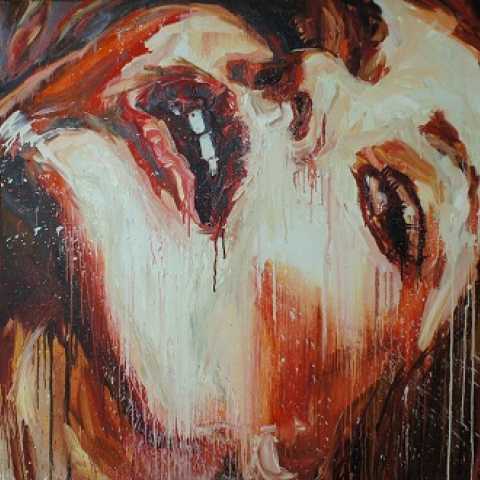Erarta Galleries
8 Berkeley Street
London
W1J 8DN
United Kingdom

Could the new image of a strong woman be one who is able to put forward her frailty, her intuitive intelligence and her natural understanding as a value for humanity without requiring protection? Annouchka Brochet's new series of paintings, Vulnerable, focuses on the power of vulnerability in a woman's world. The artist repositions vulnerability within a contemporary context where inherent weakness does not mean giving up the responsibility of acting and engaging in history. Equally, nor does this redefined vulnerability mean submitting to those who feel strong because they are in power. It is an intimacy and an openness, devoid of sexuality. Brochet's choice to depict only the faces of women prevents the projection of sexual fantasies, which would distract the viewers from the real meaning of intimate vulnerability.
Exhibition runs until 3rd October at Erarta Galleries London.
Annouchka Brochet studied at the Kalinin Art Academy in Moscow and trained as a graphic artist at the Moscow Polygraph Institute. She has been a member of the Russian Union of Artists since 1997. For the last 8 years she has actively exhibited in Russia, including the special Parallel programs of the Moscow Biennales since 2005. In addition to exhibiting extensively in Russia, she has also had exhibitions thorough Europe and North America.
Curated by Diego Giolitti
Could the new image of a strong woman be one who is able to put forward her frailty, her intuitive intelligence and her naturalunderstanding as a value for humanity without requiring protection?Annouchka Brochet's new series of paintings, Vulnerable, focuses on the power of vulnerability in a woman's world. The artist repositions vulnerability within a contemporary context where inherent weakness does not mean giving up the responsibility of acting and engaging inhistory. Equally, nor does this redefined vulnerability mean submitting to those who feel strong because they are in power. It is an intimacy and an openness, devoid of sexuality. Brochet's choice to depict only the faces of women prevents the projection of sexual fantasies, which would distract the viewers from the real meaning of intimate vulnerability.